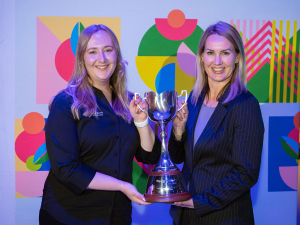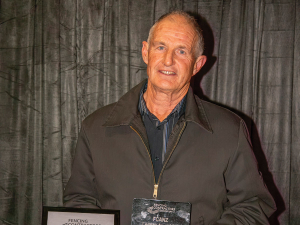A leading head of rural banking says that much of the debt is investment in expanding production, irrigation, more stock, new dairies, etc so it’s ok. Well, he would say that wouldn’t he! He didn’t mention that interest rates may well go up soon, and that will put the top 10 – 20% of indebted farmers in dire financial straits.
I am concerned that some farmers are being encouraged to make ever greater capital investments just to increase production. Let’s face it, the dairy companies want more production, the Government wants more production, and the banks are happy to lend. None of them has to live with the stress of farming and they all get paid no matter what. When was the last time any of them took a salary cut because of a drought?
There is a feeling among some industry advisers that a herd of fewer than 300 cows is no longer sustainable or profitable. This is nonsense – profitability depends on individual circumstances. However, farmers with smaller herds often feel pressured to expand production and ask me whether they should buy out the neighbour or increase carrying capacity by using more fertiliser and bought-in supplementary feeds.
Detailed analysis of their situation may show that reducing herd size reduces costs and income but maintains profit. I could quote a number of examples of farmer members who have downsized their operations to achieve a better return for their efforts.
As a bonus there is a significant reduction in stress; ask their wives and they will tell you. Getting the right balance between business debt/workload/profit and personal/family/community life is the key to satisfaction.
Of course not all increases in farm debt are bad and some will lead to greater profit. The question is how can farmers determine whether any investment will be profitable? Certainly not by studying historical tax accounts or plugging rule-of-thumb figures into a bank’s cashflow spreadsheet.
The quality of management decisions depends on the quality of information being used. In my experience farmers who have kept accurate records of rainfall, soil temperature, pasture covers and production data over a number of years are in the best position to forecast the profitability of any change. Assessing each ‘what if’ in terms of profit per kg of dry matter eaten by stock gives them the best handle on what they should do.
This approach will help answer questions such as:
Should I build a herd home or reduce debt?
Do I need help from a stock nutritionist?
How much debt can I afford?
Should I graze store lambs or dairy heifers?
Should I reduce debt or take a decent holiday?
The answers will help you strike the right balance between a profitable business and a sustainable lifestyle.
• Peter Floyd is the managing director of Cogent Farming Business Systems Ltd www.profitfocusedfarming.com tel. 0800433376 or 0275968796
















